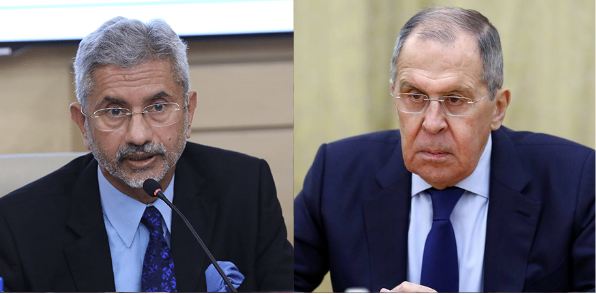The biggest takeaway from India’s growth over the past few years is that India is rising and as a necessary corollary, India is becoming more confident of itself. At a diplomatic level, New Delhi is exercising more independence and is refusing to be guided by the parameters that the Western world or the socialist powers used to set for it. Whether it is Climate Change or multilateralism or international peace and security, India is refusing to bend. On Wednesday, Indian Ministers made slammed four global powers- Russia, China, Europe and the United States of America. While Union Environment Minister Prakash Javadekar slammed China, Europe and the US over the debate on Climate Change, Union External Affairs Minister Dr S. Jaishankar slammed Russia for its prejudicial perception of India’s participation in the Indo-Pacific concept.
As for Climate Change, Javadekar lambasted the USA, Europe and China over their carbon emissions, while speaking at a panel organised at the Embassy of France to mark the Official Visit to India of Minister for Europe and Foreign Affairs of France, Jean-Yves Le Drian. Javadekar also stressed that India would not raise its climate ambition at the behest of developed nations because India has every right to develop.
The Environment Minister added, “The historical emissions responsibility today of is China 28%, USA 40%; Europe 10% and India is only 3%.”
On the other hand, Dr S. Jaishankar participated in a virtual discussion with his Australian and French counterparts, Marise Payne and Jean-Yves Le Drian, at the Raisina Dialogue.
India’s External Affairs Minister used the discussion to give a loud and clear message- no country can have a veto on India’s ties. Dr S. Jaishankar was presumably speaking in the context of what the Russian Foreign Minister Sergey Lavrov had said at a joint news conference with Dr Jaishankar in New Delhi on April 6. Lavrov had used the term “Asian NATO” for emerging alliances in Asia.
Moreover, the envoy from Russia, Nikolay Kudashev had earlier criticised the Indo-Pacific strategy, alleging that it was aimed at reviving Cold War-era structures.
India’s External Affairs Minister did not take names. But he did dismiss the use of terms like “Asian NATO” as a “mind game.”
The Minister said, “The idea that somehow because we come together, there is some sort of threat or messaging to others – I think people need to get over this. Using words like Asian Nato etc, this is a sort of mind game which people are playing. I can’t have other people sort of have a veto about what I’m going to discuss, with whom I’m going to discuss.”
As for the allegation of reviving Cold War-era structures, the External Affairs Minister said, “Indo-Pacific is a return to history, it reflects a more contemporary world. It is actually overcoming the Cold War, not reinforcing it.”
The message coming from India’s top diplomat has however been clearly communicated- no international power can dictate how India should pursue its regional and global interests. India remains autonomous in the sense that it can decide what to discuss and with whom to discuss.
As such, New Delhi is not acting arrogant. India does value its alliances, partnerships and friendships in the present world order. But it does not mean that New Delhi should not pursue its larger interests or that it should bend according to the will of others.
The message for the global powers is clear- India cannot wait to develop and achieve its true potential. This is the new India. It is confident and it will achieve what it truly deserves without succumbing to the pressure exerted by external forces.
